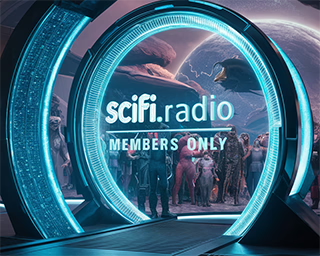We mark a colossal milestone in cinematic history today as we celebrate the 69th anniversary of the original appearance of Godzilla, the King of the Monsters. The actual date was October 23, 1954. The American version, Godzilla, released April 27, 1956. From his atomic breath to his thunderous roar, Godzilla has been a pop culture icon since he first emerged from the depths of the Pacific Ocean to grace the silver screen.
It was 1954 when the world first witnessed the awe-inspiring spectacle of Godzilla, in a film directed by the visionary Ishiro Honda and produced by the legendary studio, Toho Co., Ltd. Honda, alongside producer Tomoyuki Tanaka and special effects maestro Eiji Tsuburaya, created not just a movie monster, but a symbol of post-war fears and the nuclear age.
The inception of Godzilla, or Gojira as he is known in Japan, was no mere accident. Born from the ashes of World War II and the tragic incident of the Lucky Dragon 5 fishing boat, which was contaminated by radioactive fallout from American nuclear testing at Bikini Atoll, Godzilla was a manifestation of the anxieties of the time. His destructive power mirrored the real-world apprehensions about nuclear weapons and the indelible scars they left on the Japanese consciousness.
In the original film, “Godzilla” (1954), our eponymous monster is awakened by nuclear testing and goes on to wreak havoc on Japan, leveling Tokyo in a stunning display of special effects that would set the standard for tokusatsu (special filming) techniques. This film was not just a thrilling monster movie; it was a poignant exploration of the human condition, making a powerful statement about the nuclear age that resonated with audiences worldwide.
Through the years, Godzilla has starred in over 30 films, battling foes like King Ghidorah in Ghidorah, the Three-Headed Monster (1964) and Mechagodzilla in Godzilla vs. Mechagodzilla (1974). Each film served as a vehicle not just for epic showdowns, but also for social commentary, reflecting contemporary concerns and humanity’s hubris.
The Godzilla franchise has been a playground for filmmakers to explore various themes, such as environmentalism in Godzilla vs. Hedorah (1971), where the monster faces a pollution-based creature, or bioengineering in Godzilla vs. Biollante (1989) where he battles a genetically engineered hybrid. Each entry in the series has allowed audiences to thrill at the epic monster battles while subtly digesting commentary on contemporary issues.
While the Japanese films have varied in tone from the serious to the fantastical, Godzilla’s fame also led to Hollywood adaptations. After the 1998 Godzilla film by Roland Emmerich, which received a mixed reception, the monster returned to American screens with Legendary’s MonsterVerse. This series includes Godzilla (2014), Godzilla: King of the Monsters (2019), and saw Godzilla spar with another titan in Godzilla vs. Kong (2021).
Godzilla’s impact isn’t limited to films. He has smashed his way through television series, video games, novels, comic books, and is a merchandising powerhouse. From action figures to clothing, Godzilla’s likeness is an indelible part of the merchandising world, showcasing his unending popularity.
With Toho’s announcement of further films, Godzilla’s legacy is poised to continue. The planned Godzilla Cinematic Universe is an exciting prospect for fans, suggesting many more years of the monster’s dominance in popular culture.
On his 65th birthday, Godzilla remains a figure of awe, a creature that symbolizes both the fears and fascinations of the nuclear age. From the haunting imagery of his first appearance to his current status as a pop culture titan, Godzilla has proven to be more than just a monster—he’s a cinematic icon.
So, here’s to you, Godzilla, as you turn 65—may your reign be long and your roar ever thunderous. The silver screen awaits your next adventure, and we, your loyal subjects, await the inevitable tremors of your footsteps in the theaters once again. Happy Birthday, Godzilla, King of the Monsters. Long may you rule.
-30-
![]()
SCIFI.radio is listener supported sci-fi geek culture radio, and operates almost exclusively via the generous contributions of our fans via our Patreon campaign. If you like, you can also use our tip jar and send us a little something to help support the many fine creatives that make this station possible.











